
Tondo
Tondo - Living in the Rubbish
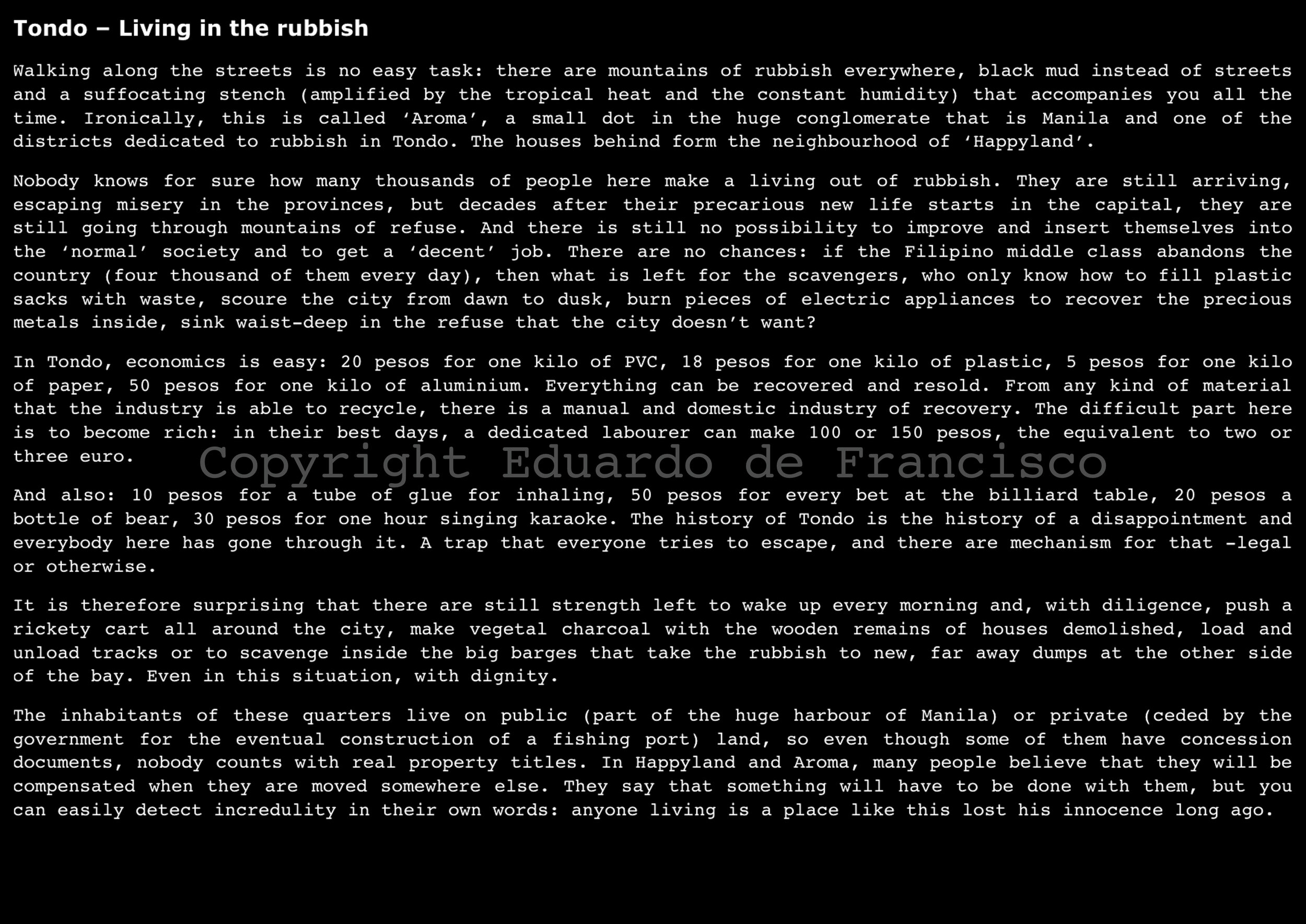
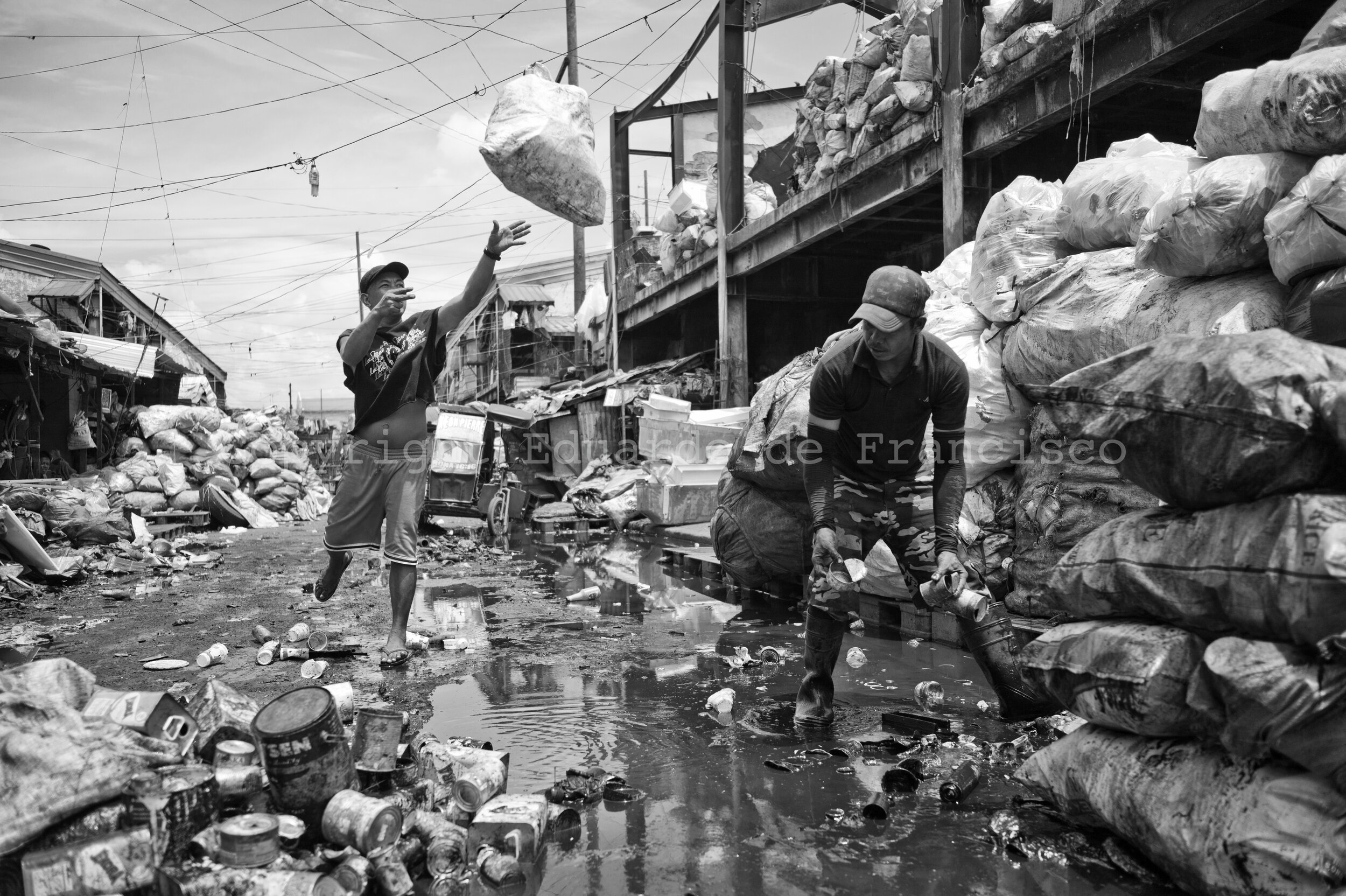
John Ocampo (right) and John De los Santos. They work together recycling rubbish in the streets of 'Aroma'. They have been in Manila since 31 and 40 years ago, respectively.
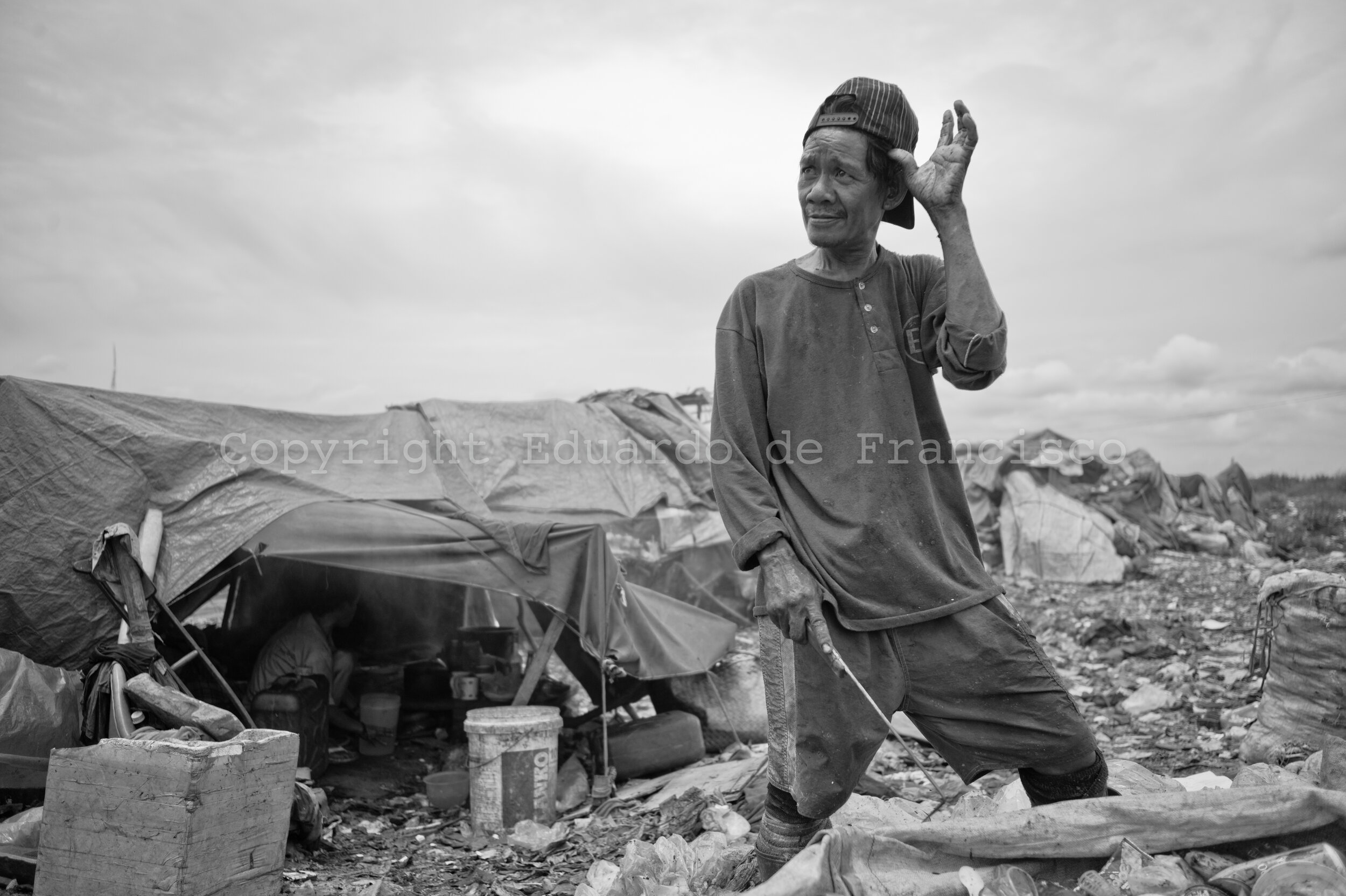
Jimmy Barnoba (right) and his wife Mary Vista (left, inside the plastic tent where they live). Since they arrived from Samar Island to Manila in 1977, they have worked scavenging in different dumps. These days, Jimmy works inside the barges where the rubbish trucks dump the city's refuse. Mary can't work since, some years ago, one of those trucks hit her hip badly and forced them to use crutches. Every now and then, a church nearby gives them second hand clothes. They have a four-year old son.
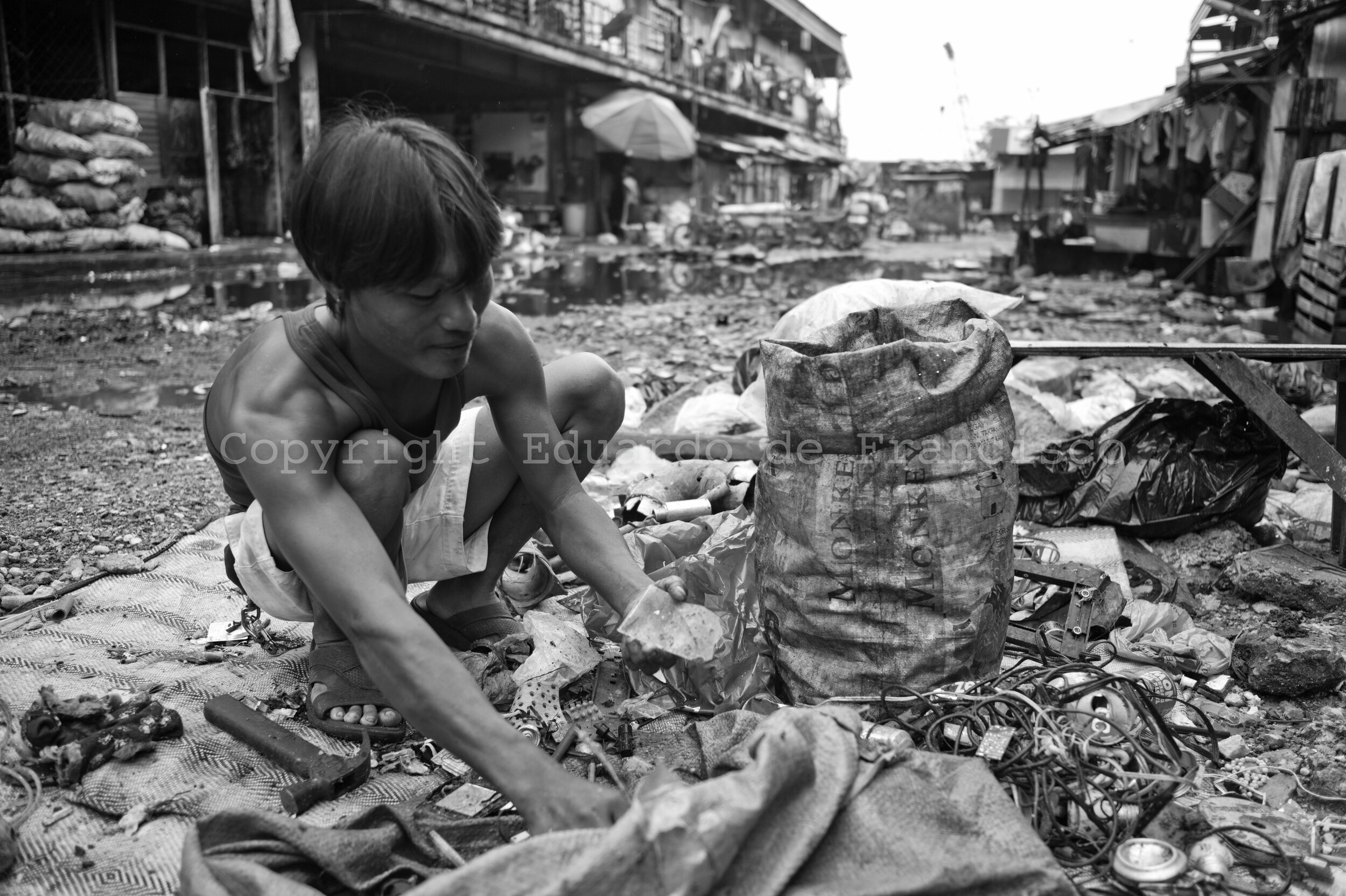
Roberto. He works classifying rubbish in the streets of Aroma and earns between 100 and 200 peseos (2-4 euro) per day. He normally works with cables and electronic waste.
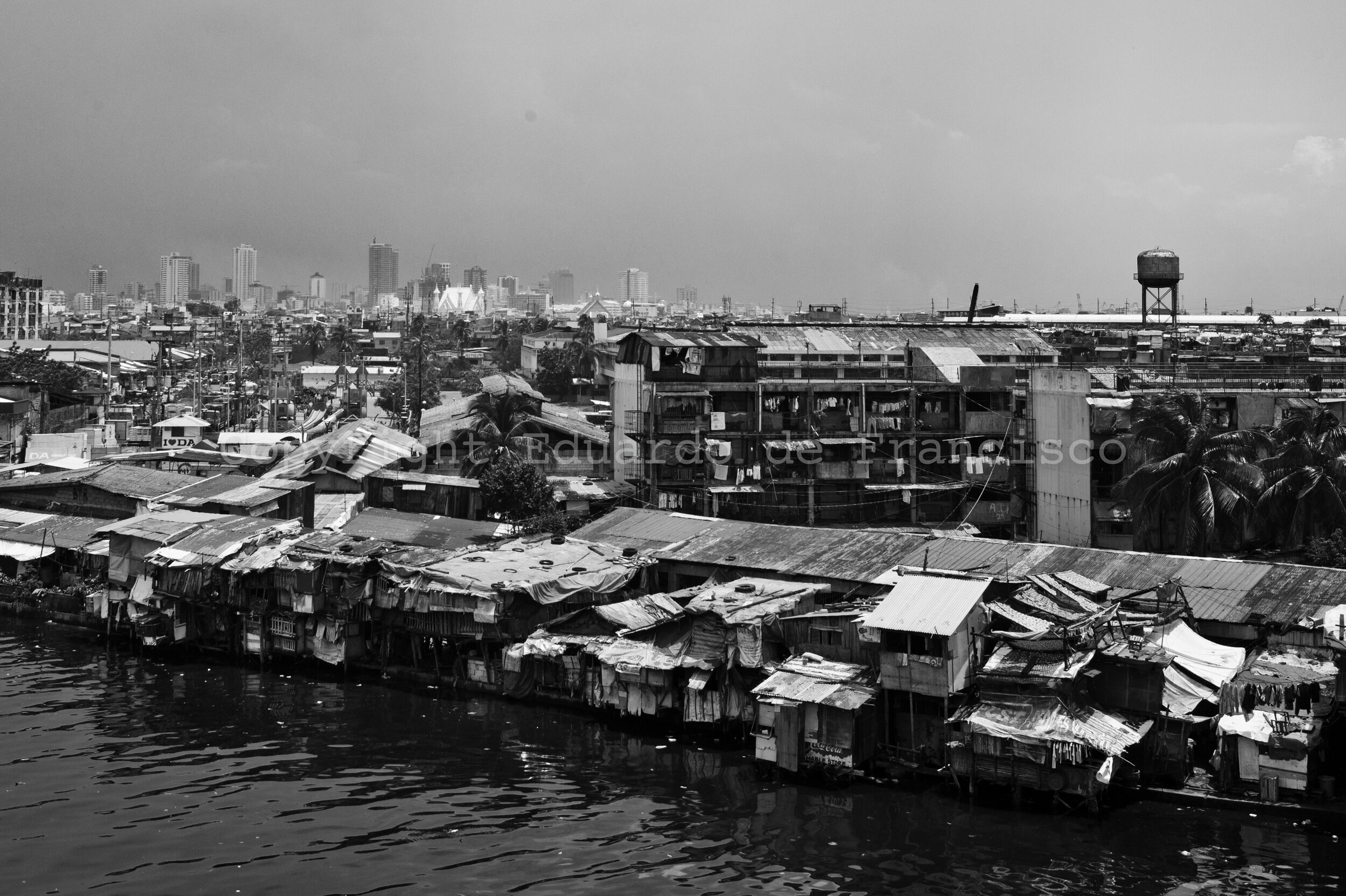
Manila, seen from Tondo, with the Estero river in the foreground.
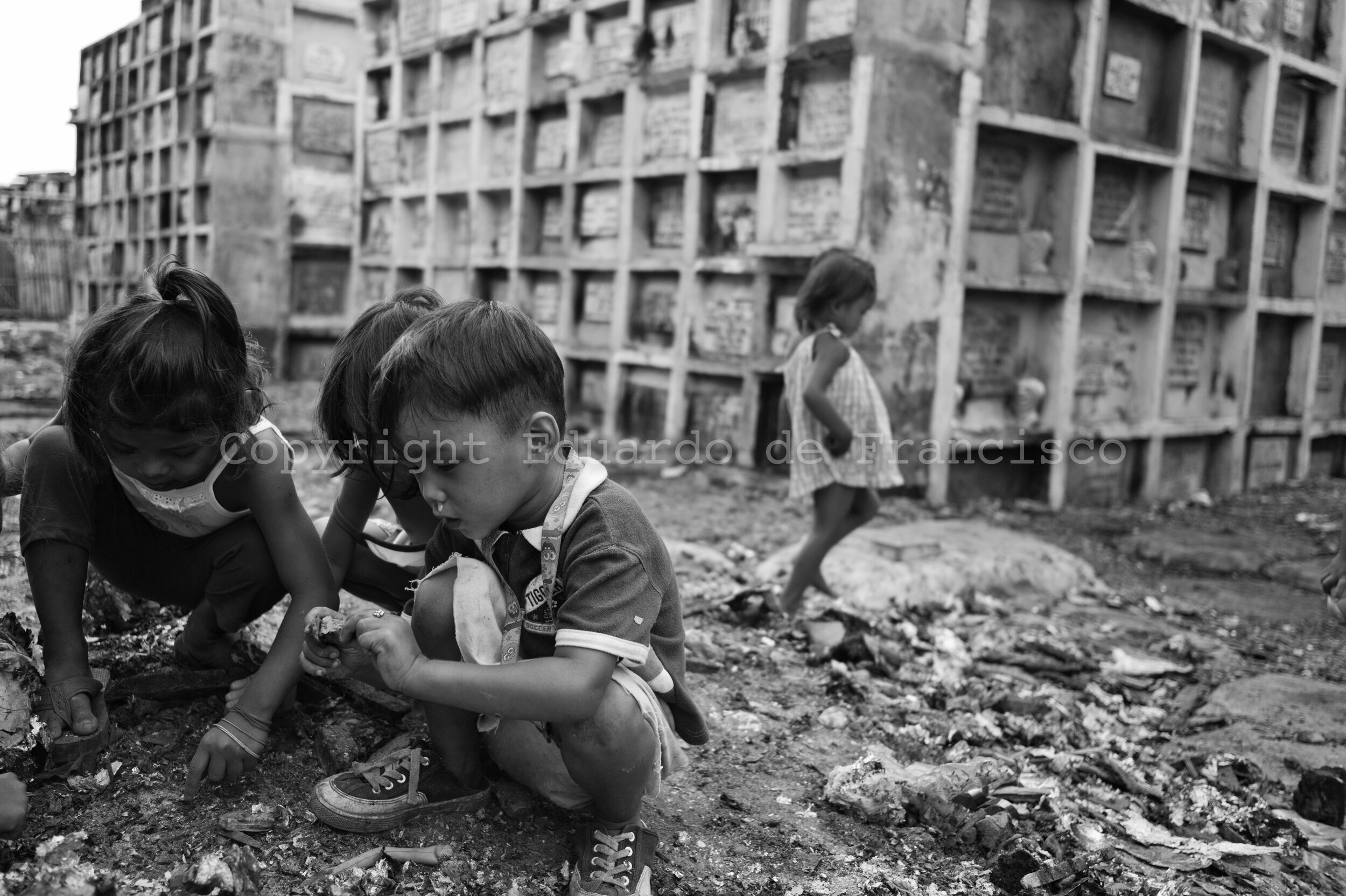
Navotas Cemetery, north of Tondo. A group of children, who live inside the cemetery with their families, search among the rests of burn waste for anything that can be reused.
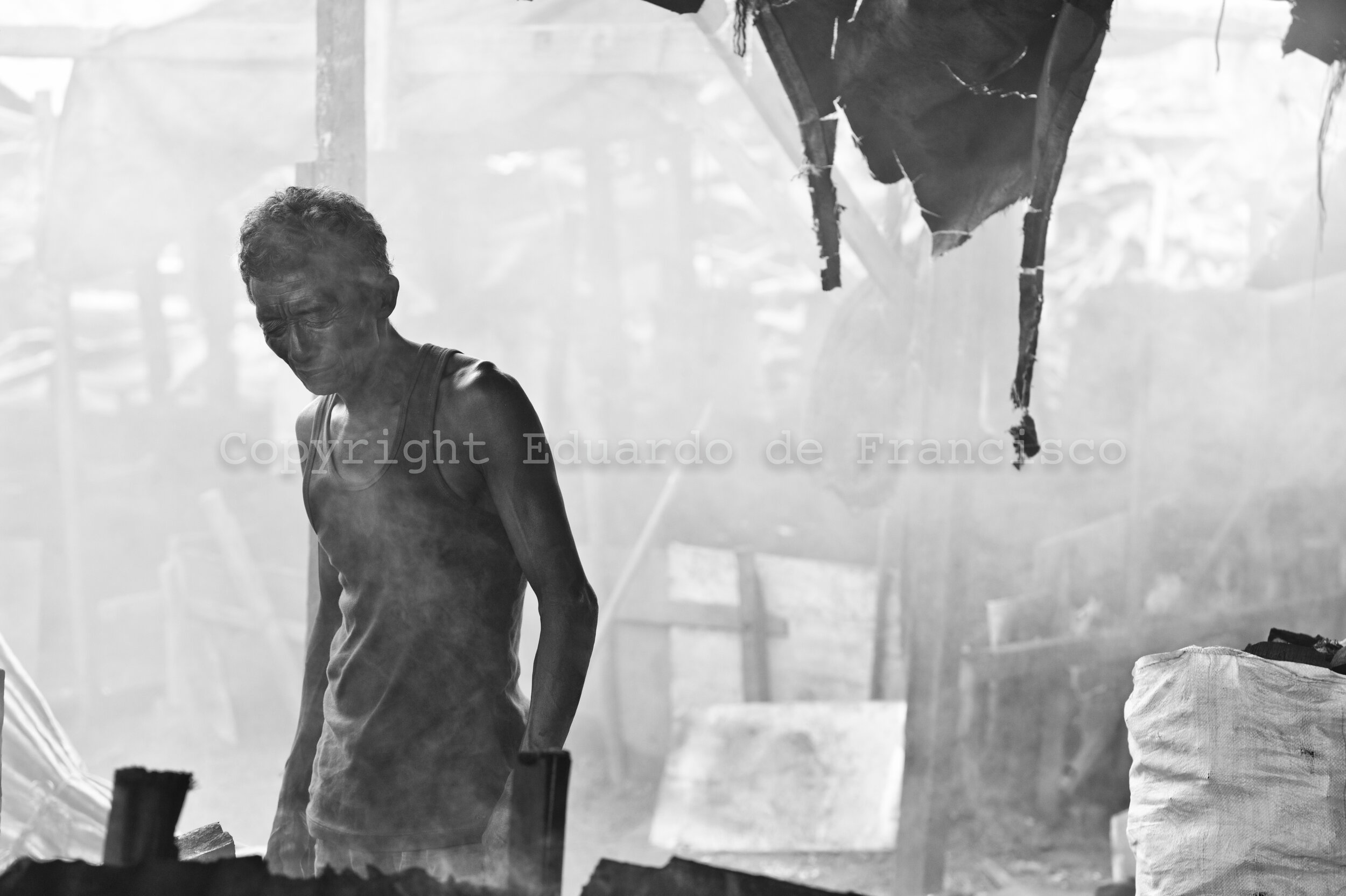
Making vegetal charcoal with the remains of wood rescued from dumps or bought. The men prepare the pires mixing wood and earth and keeping them in combustion in between 4 and 7 days depending on size. Several friends work together, initially borrowing money to buy the wood and later on dividing the benefits: they can make 500 pesos (around 10 euro) per person in five days of hard work.
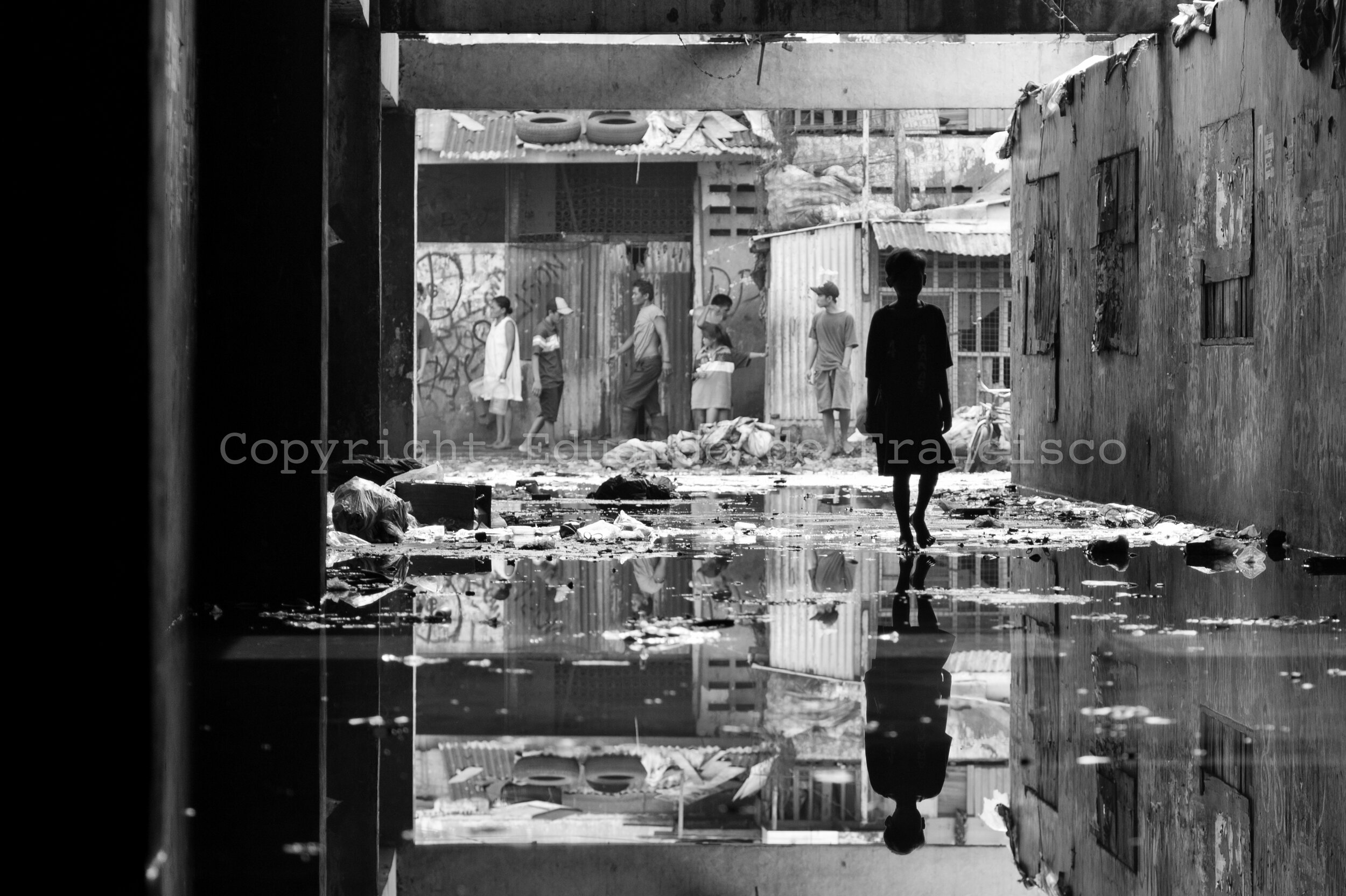
Streets inside the old industrial complex known as 'GK', these days subdivided into hundreds of houses.
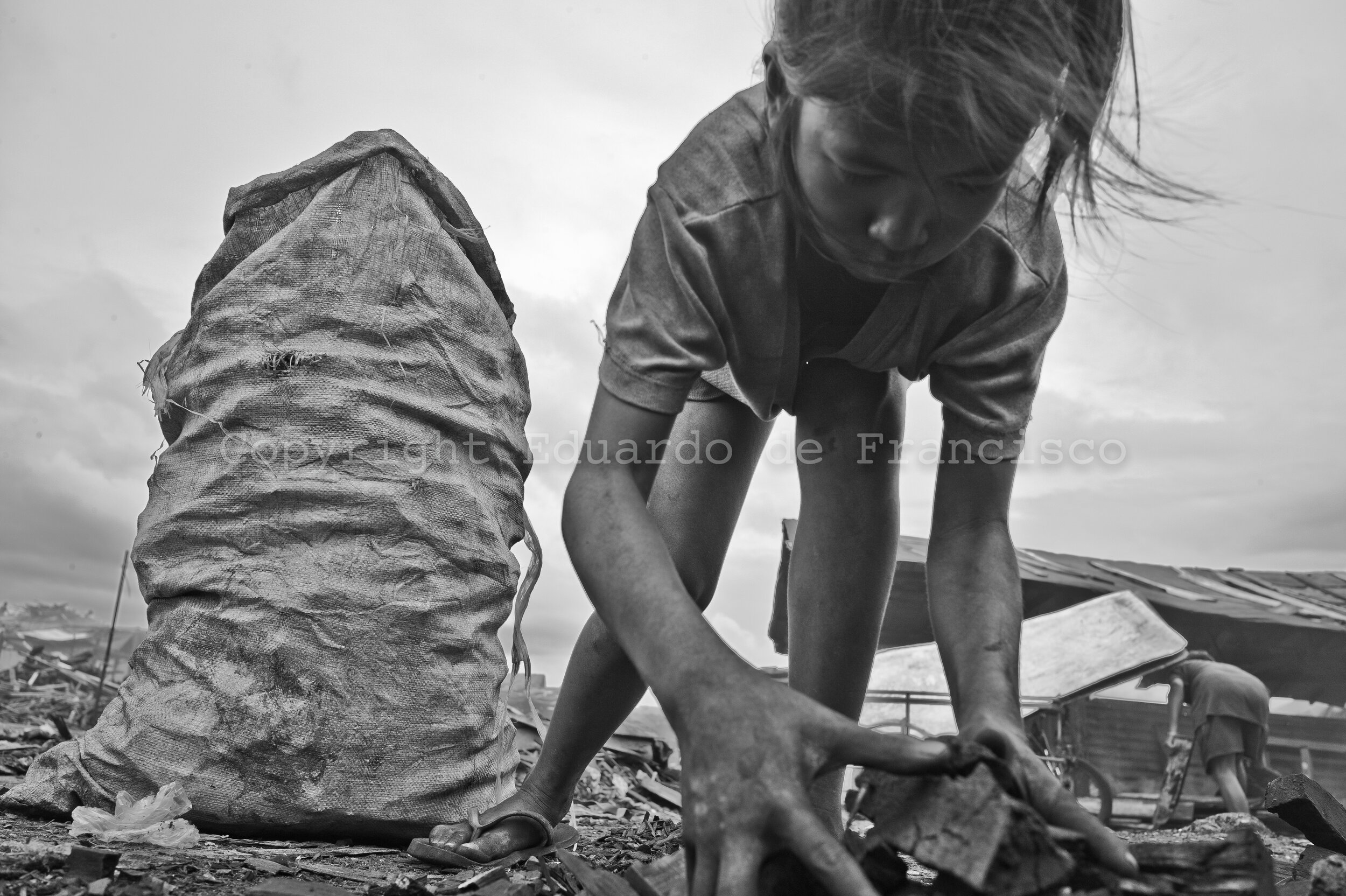
Jasmine, 12 years old. Like the rest of her siblings, she helps the family whenever extra hands are needed. Here, she packs pieces of charcoal into plastic sacks, waiting for the dealer. In Tondo, in between 500 and 800 families depend on charcoal production for their subsistence.
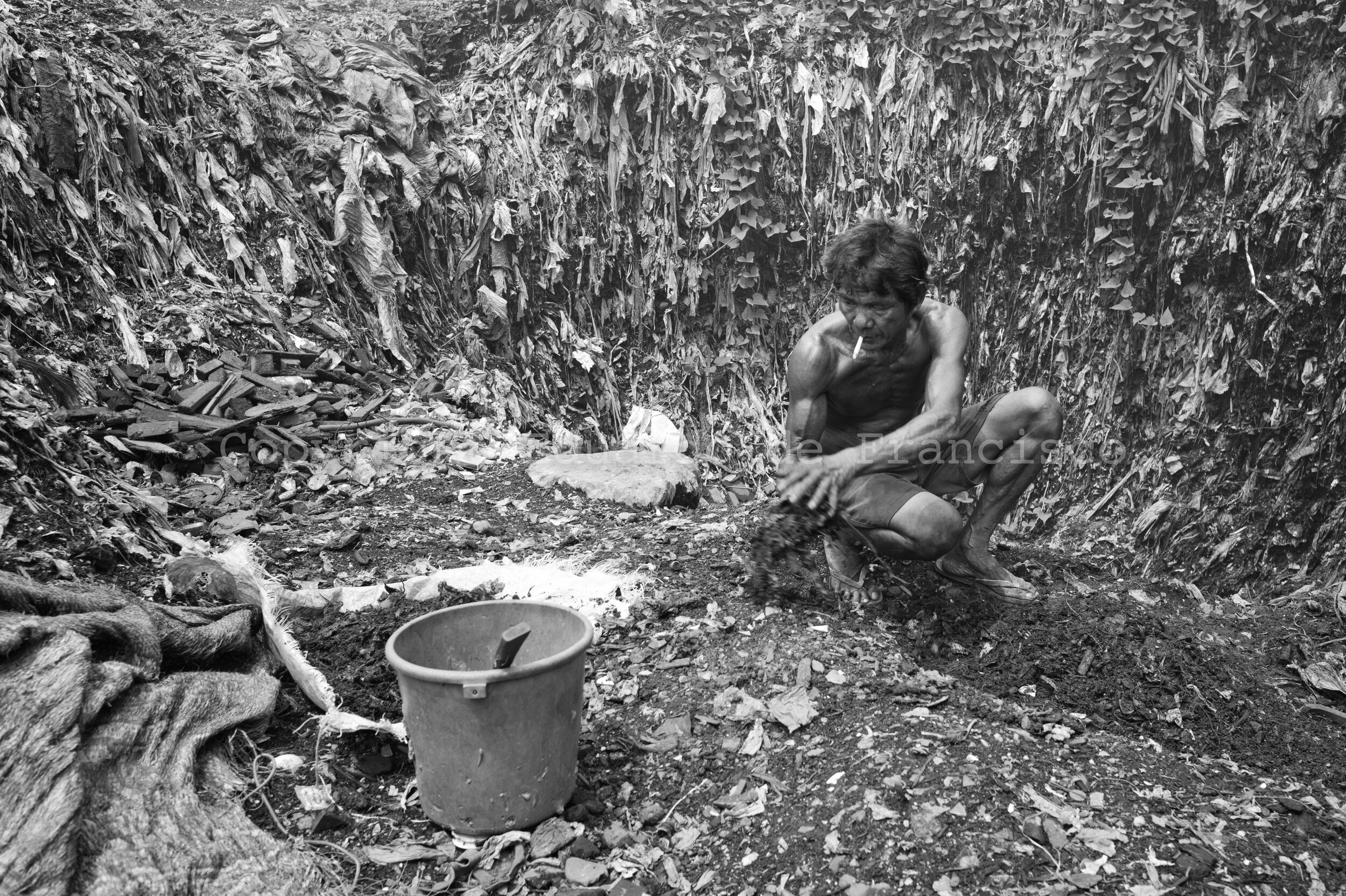
In 1957, the municipality of Manila started dumping waste into a small lake in Tondo. Decades later, it became a 50 meters high hill, known as 'Smokey Mountain', where hundreds of families eked out a living scavenging. The dump was closed in 2009, but Smokey Mountain is nowadays excavated as if it were a mine, in order to recover cans, nails, pieces of wood, bottles, etc. In this picture, Dante, 50 years old, who was born here and worked as an scavenger all his life, digs for 10 hours every day to earn 50 or 100 pesos (1 - 2 euro) per day to feed his women and five children.
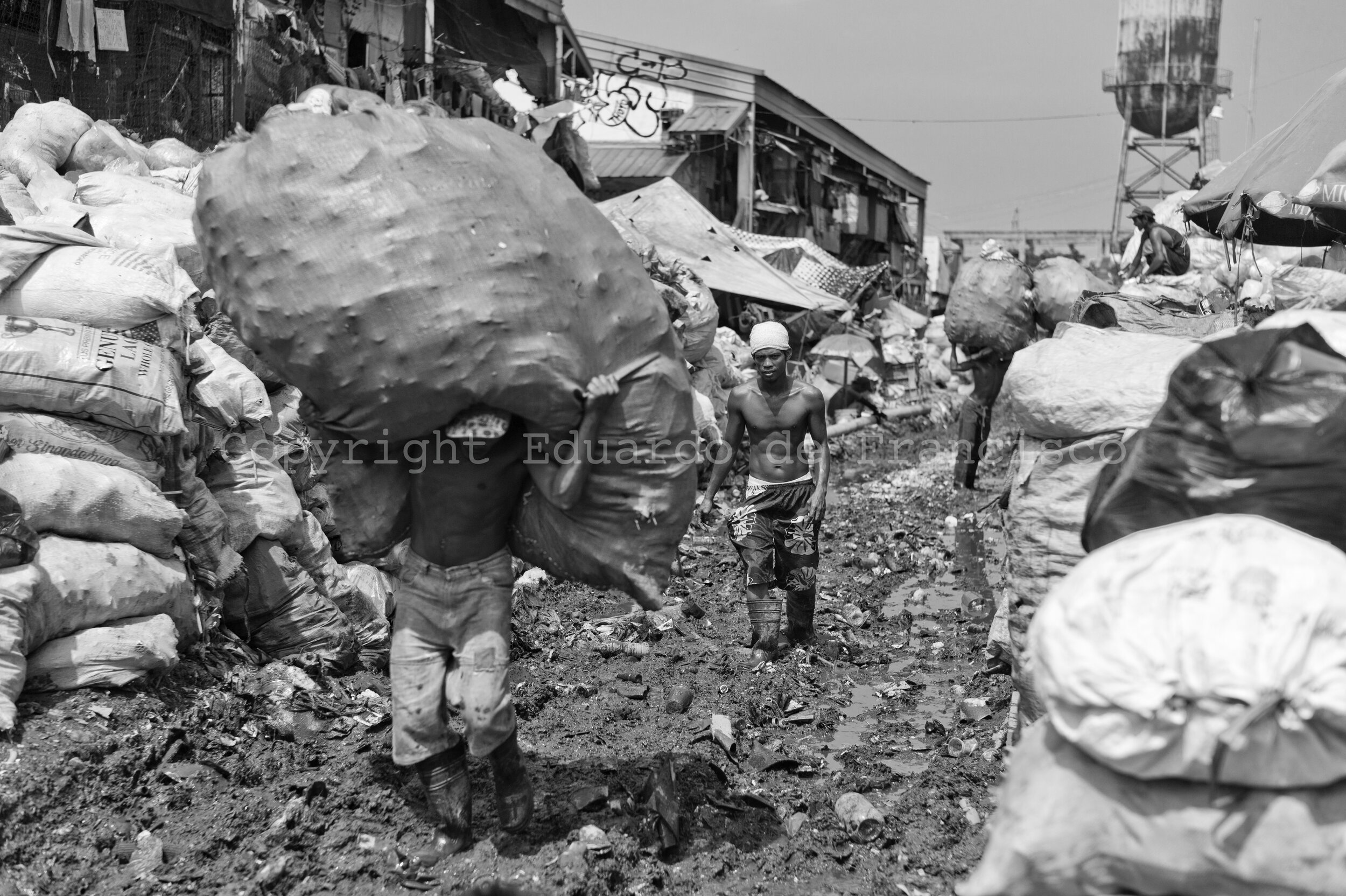
Daily workers carry bags containing rubbish already classified and ready for treatment.
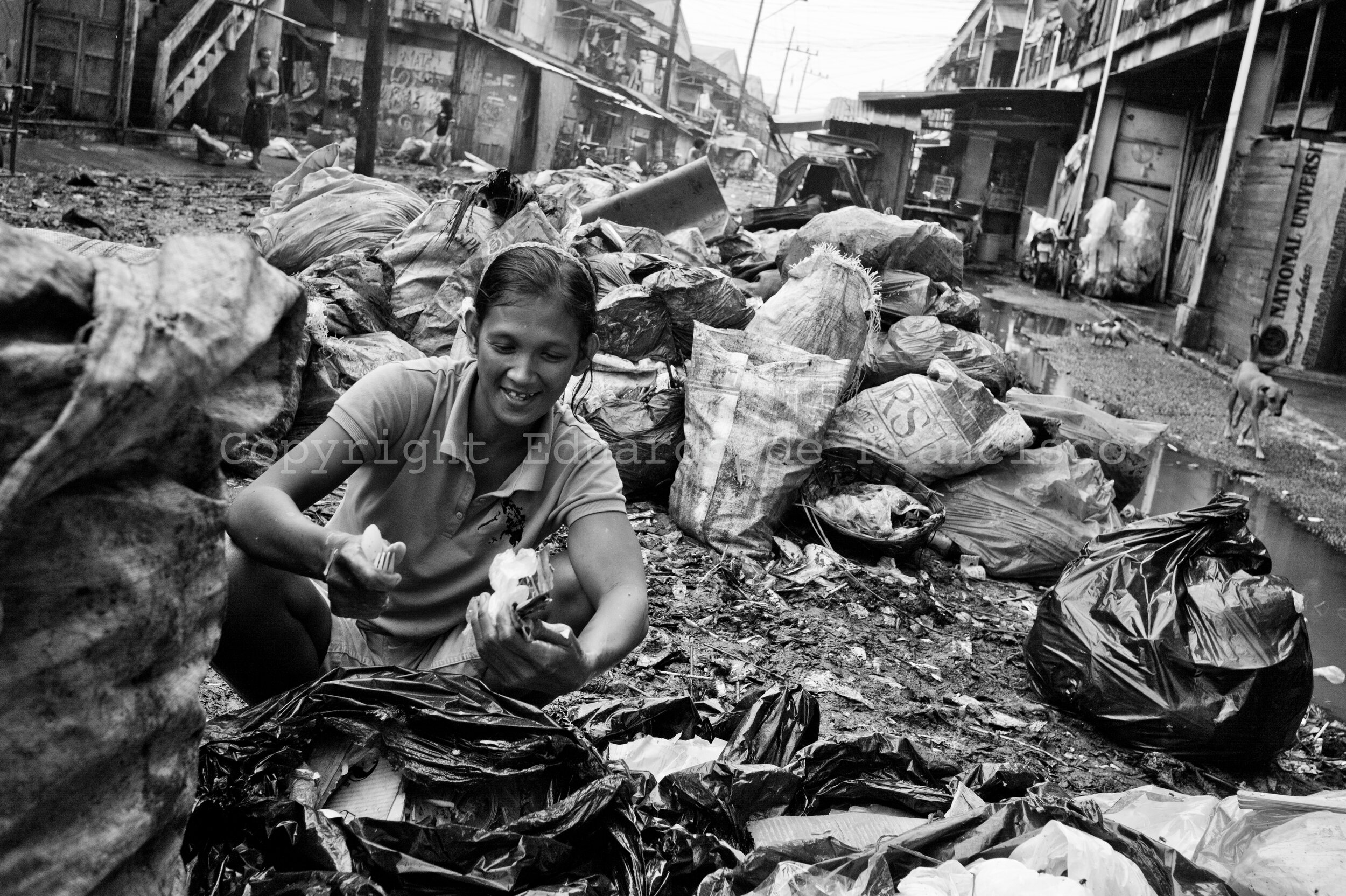
Perlita, who lives in the neighbourhood of 'Aroma' and works fifteen hours a day classifying plastic. She makes, on average, 75 pesos per day (1.5 euro), adding this to her husband's meagre salary as a construction worker.
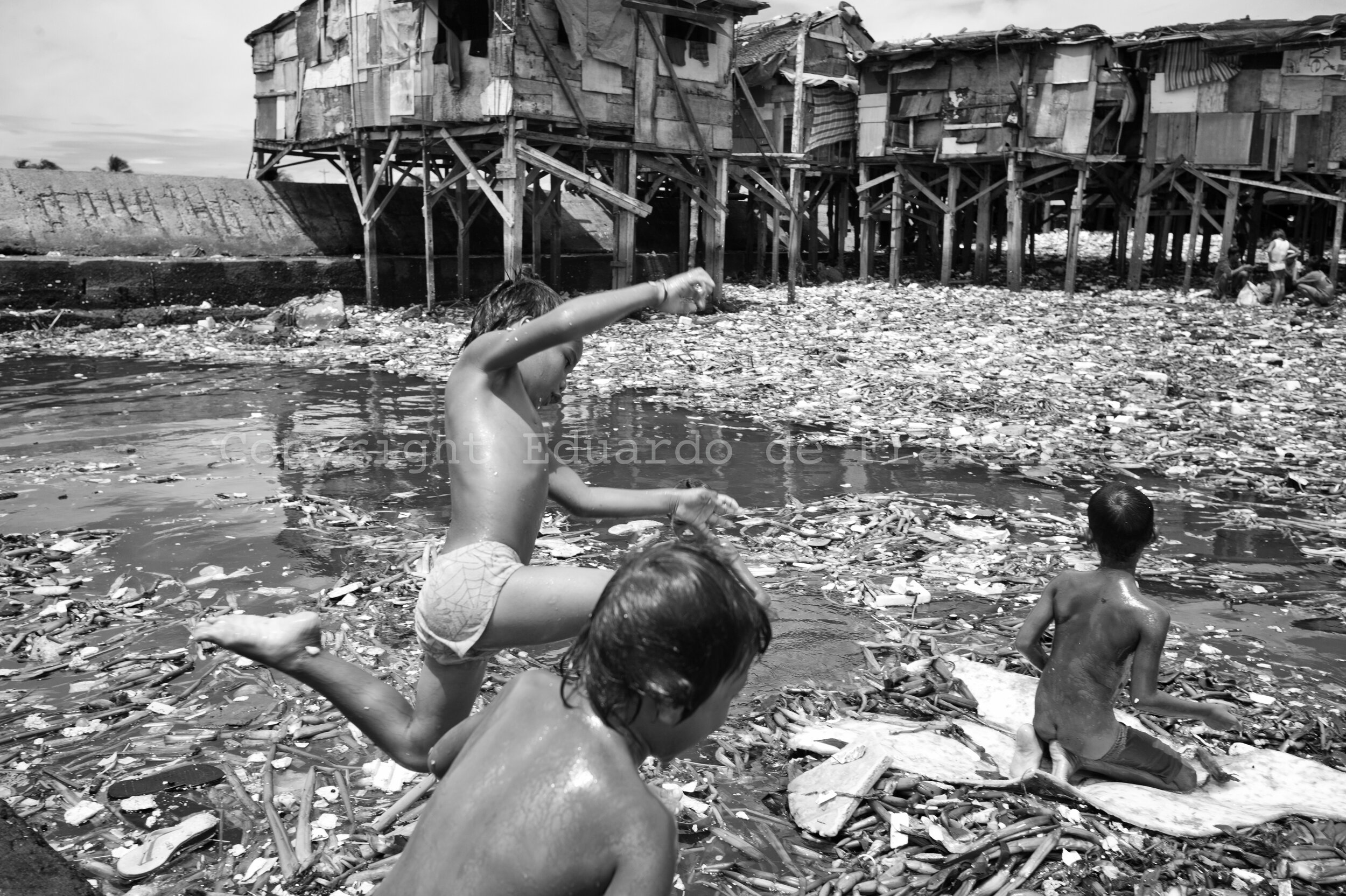
Children playing near the mouth of the Vitas river, which carries big amounts of rubbish and organic refuse into the see.
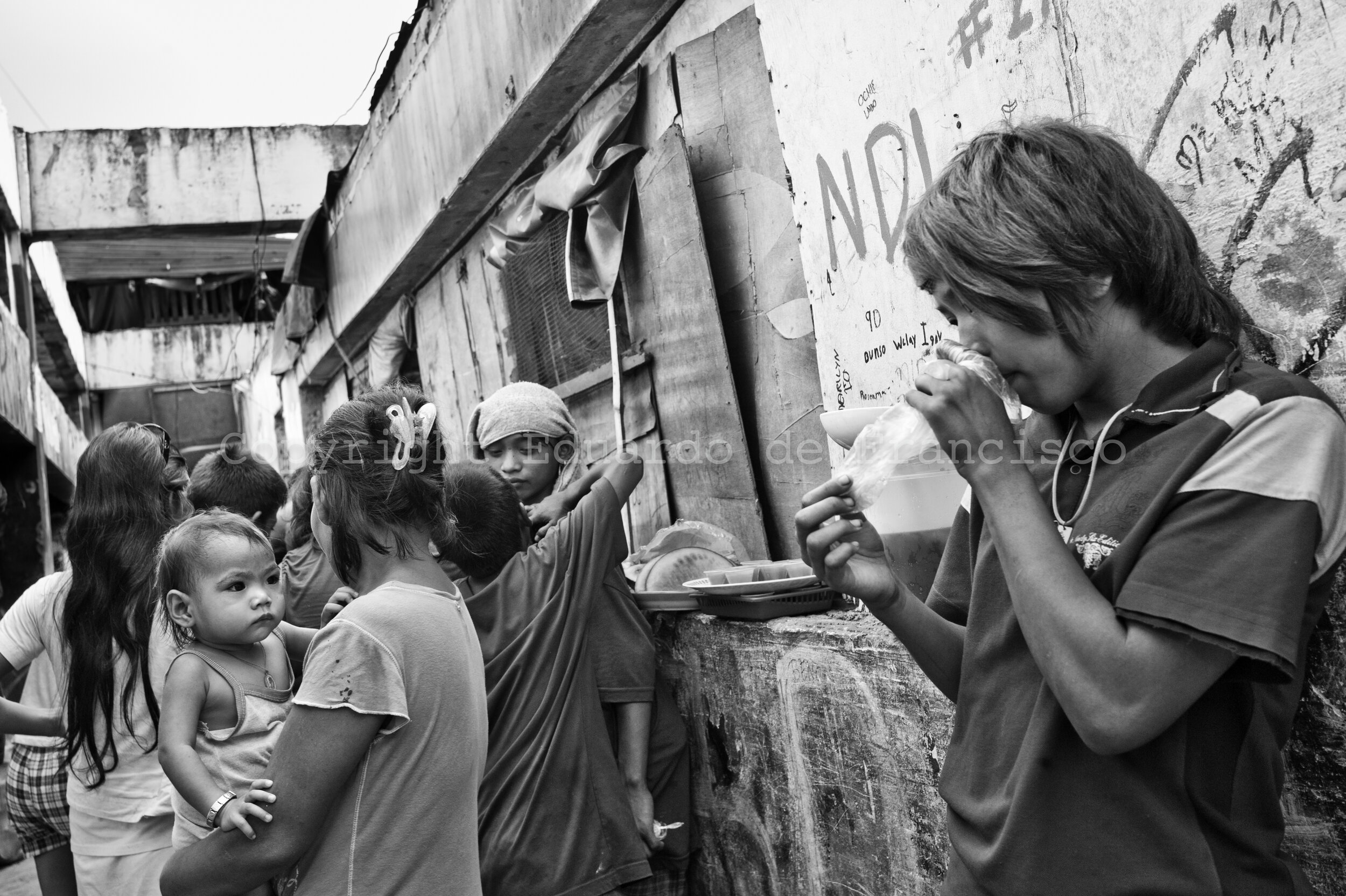
Streets of the GK comples at dusk.
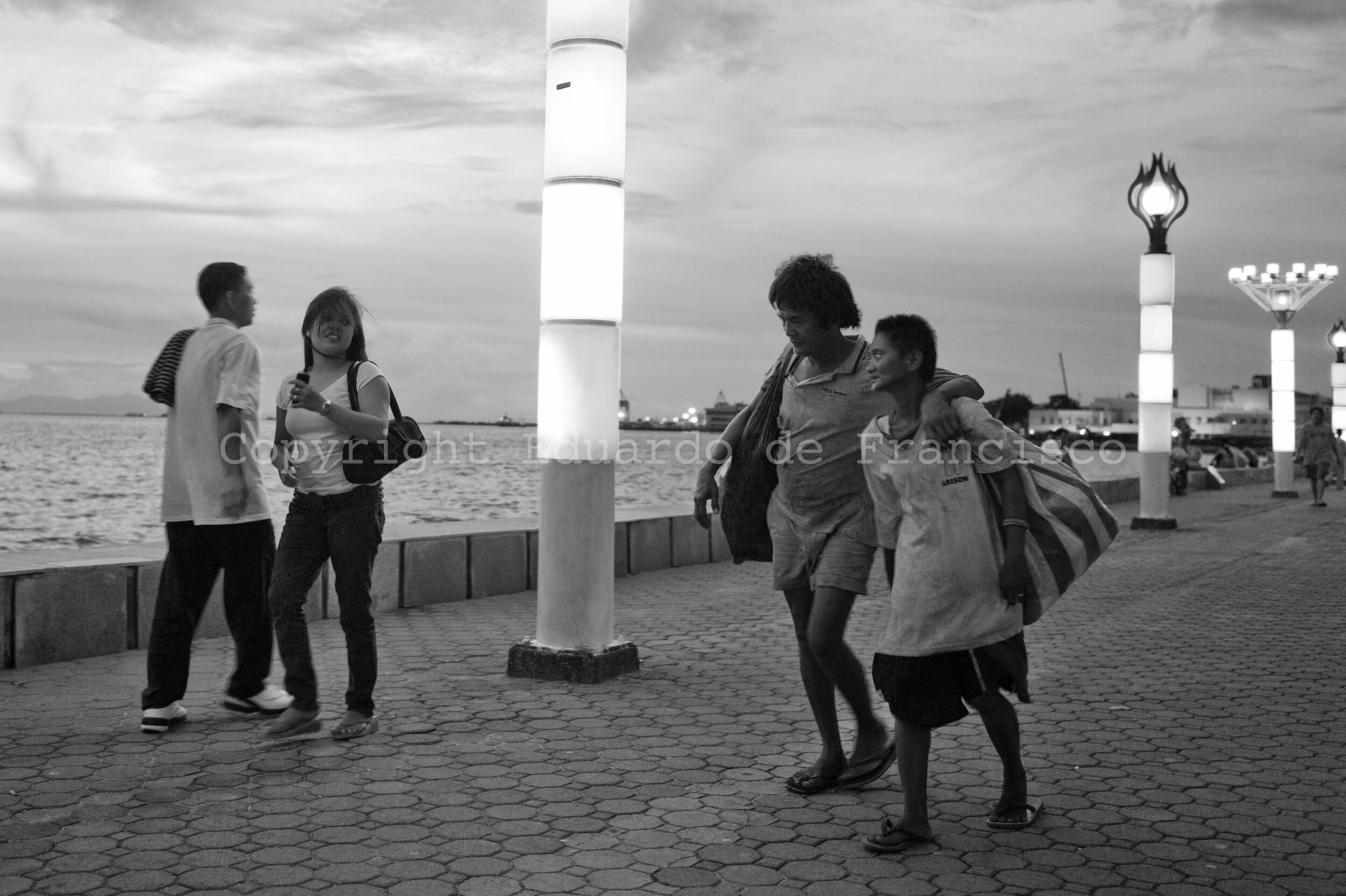
At dusk at Roxas Bulevard, two scavengers rummaging through the litter bins walk along middle-class Filipinos. They are very often invisible to these, who sometimes don't even know that, in the same city, thousands of families make a living from the rubbish.
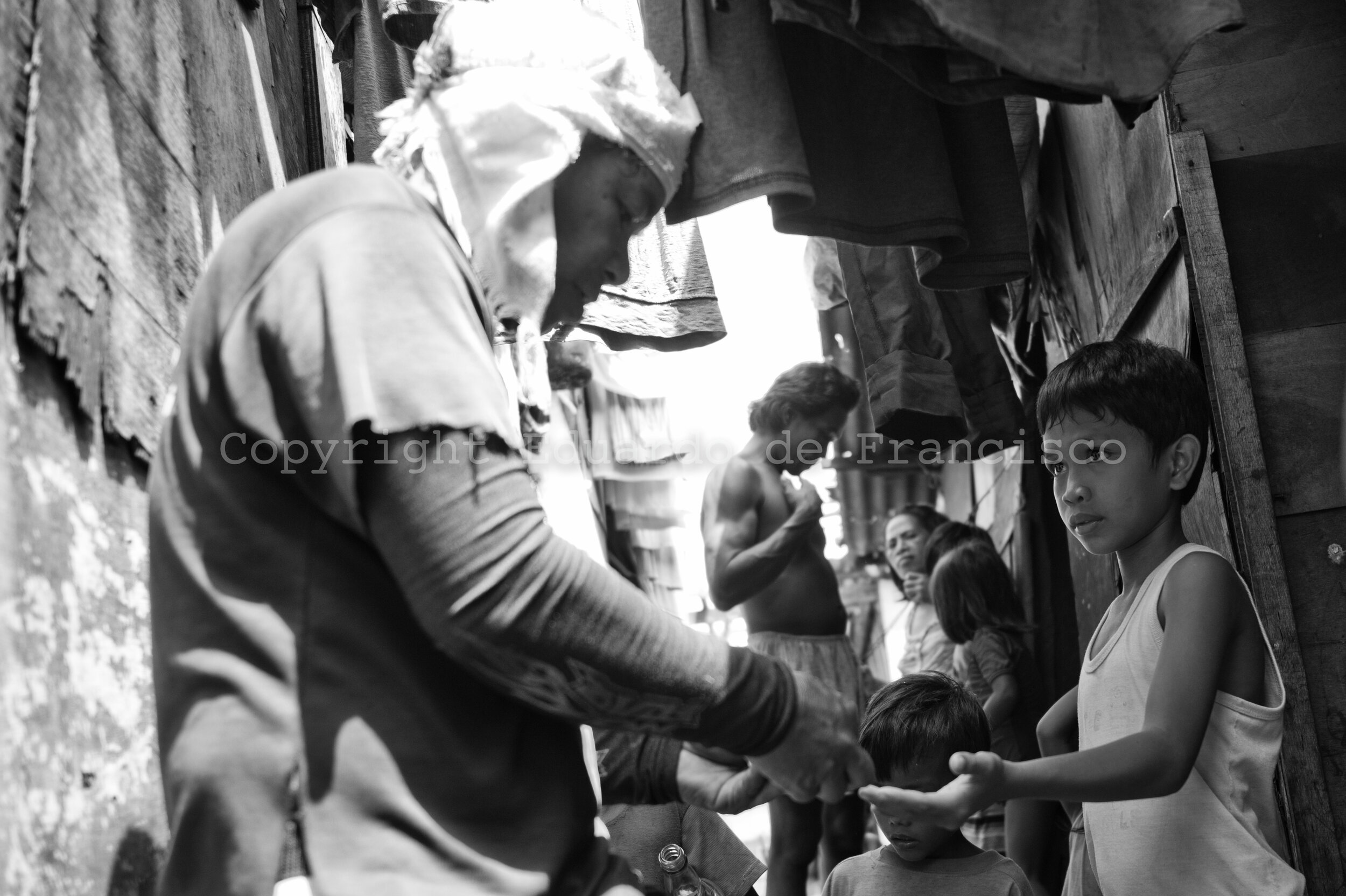
Renato Traballos (left) goes around the quarter of 'Happyland' collecting bottles rescued by children: 50 cents of peso (one cent of euro) the big ones, one peso the small ones. Then he resells them to a bigger dealer for double those prices.
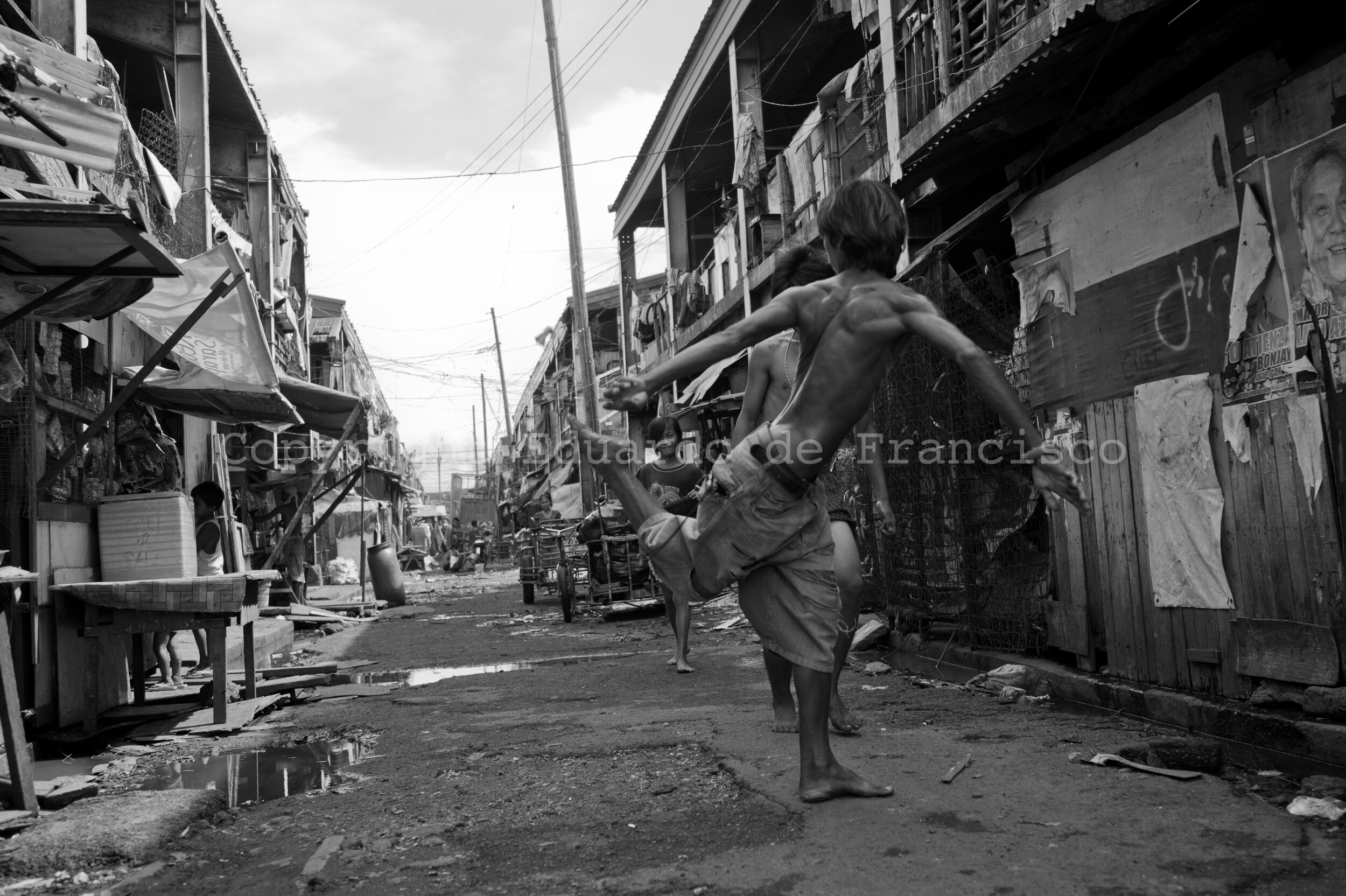
Men playing in the streets of Aroma.
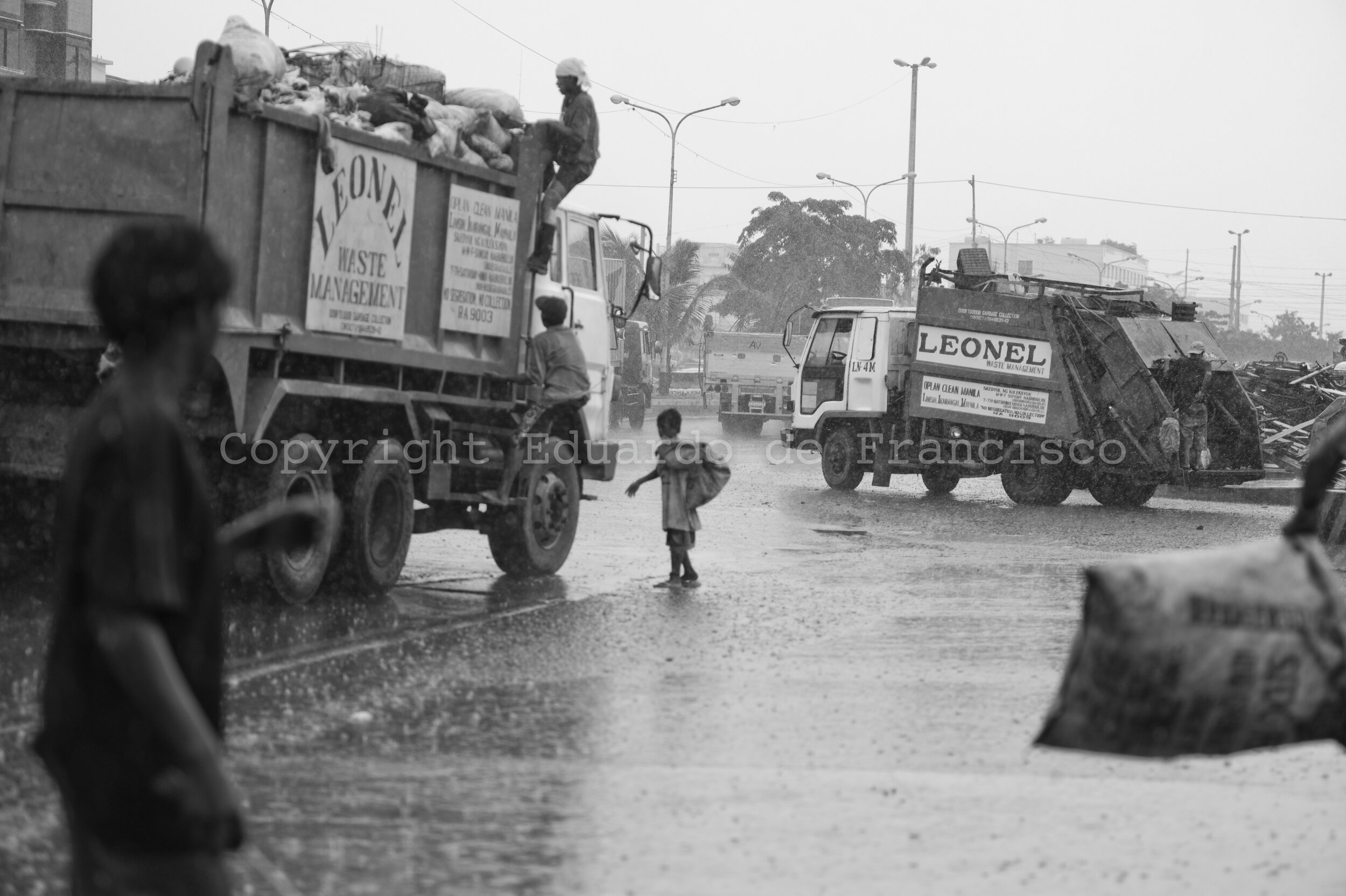
Before the trucks from the concesionary company, loaded with rubbish, get into the terminal where the rubbish is taken out of Manila in big barges, groups of children climb into them to fish the most valuable picks, in particular aluminium cans: one kilo of aluminium is sold for 50 pesos - one euro.
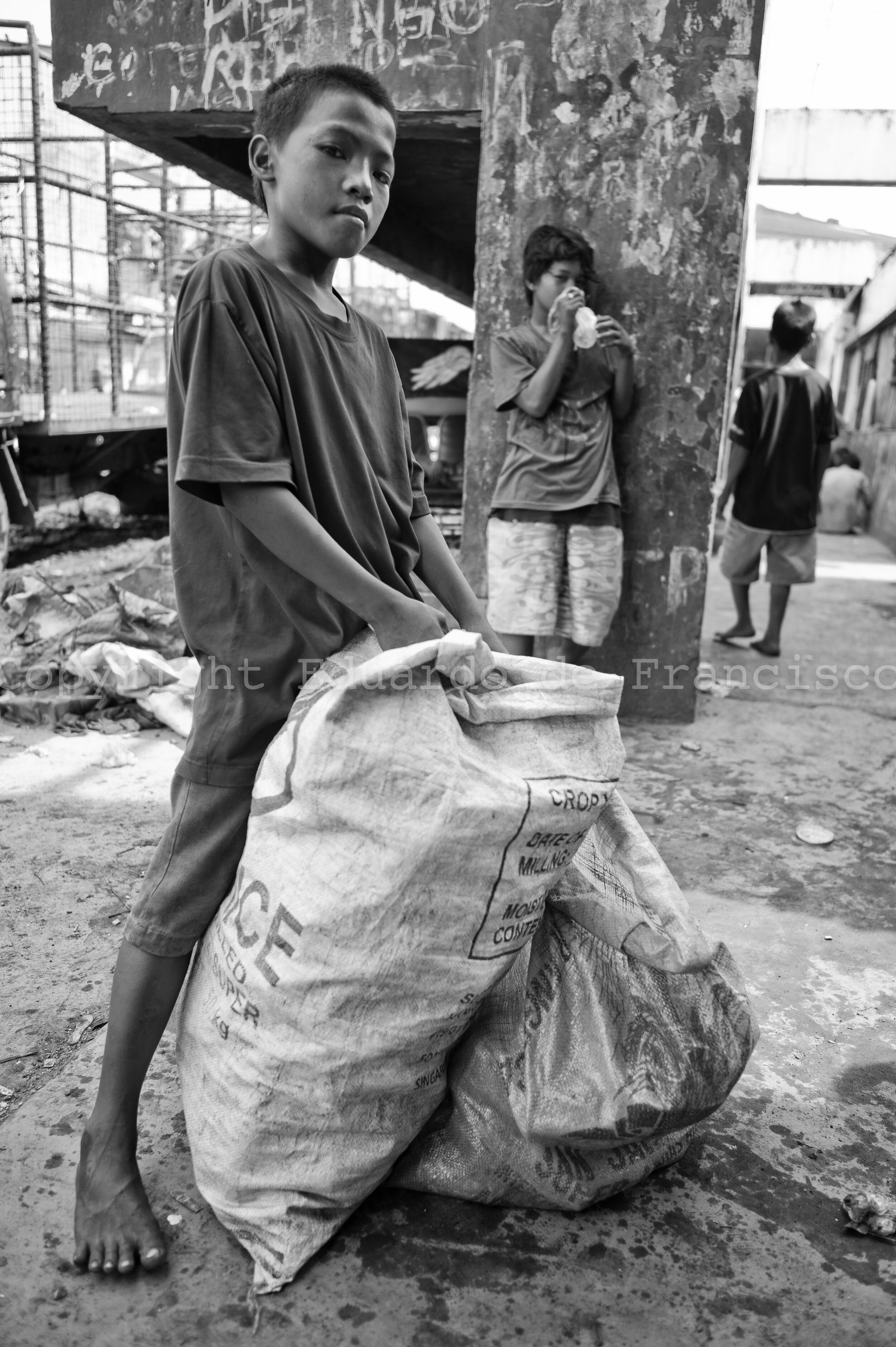
Romel (left), 12 years old. He has 7 brothers and sisters, and lives with his mother and step-father (his father died). He collects rubbish and earns 100 pesos (2 euro) per day. Like most of children of his age, he inhales three bags of glue every day, paying 5 pesos (10 cents of euro) each.
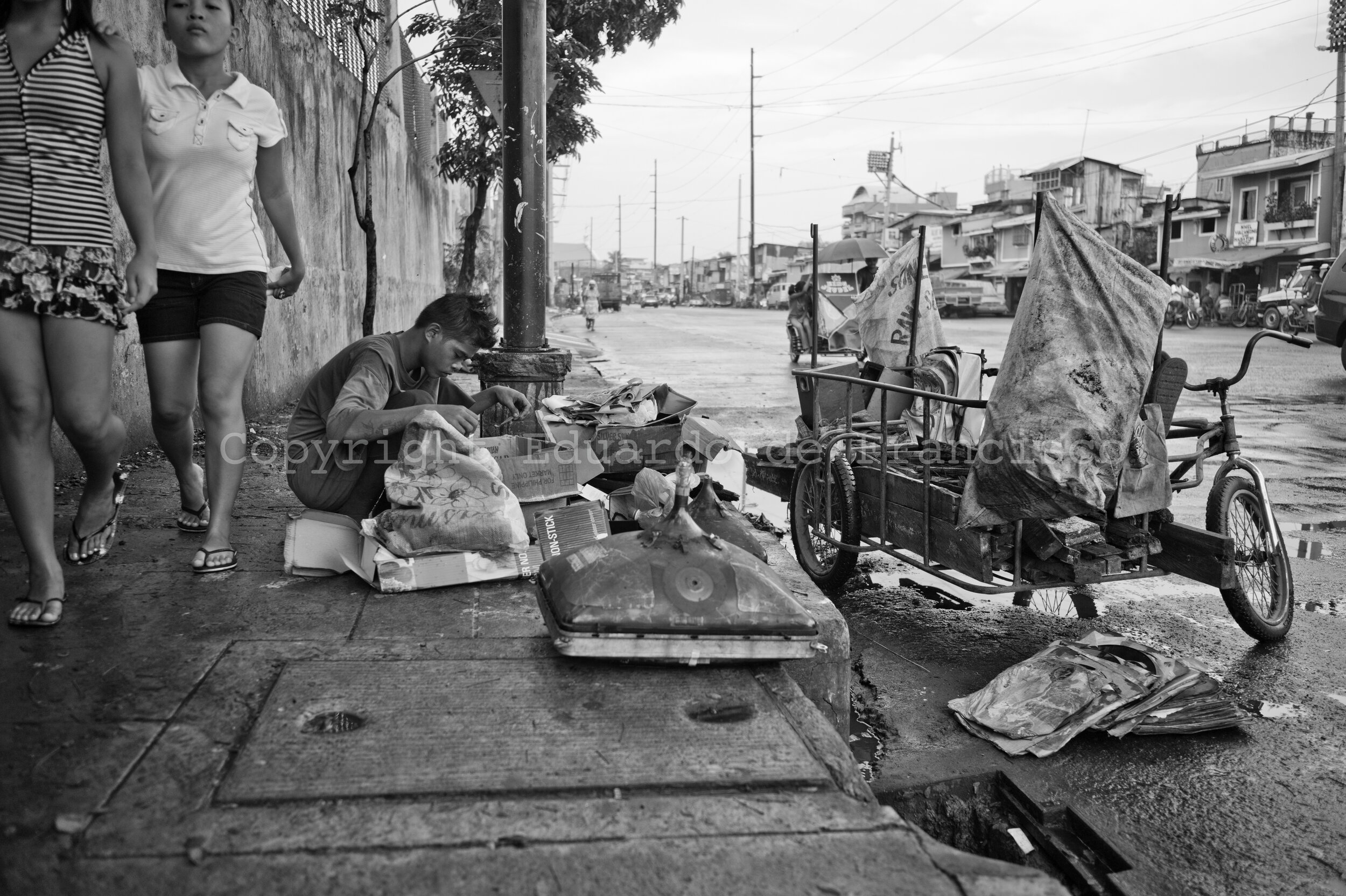
Ferdinand Marcos Avenue, early morning. A young scavenger examines what the dump trucks didn't carry, in order to grab anything that might be resold later.
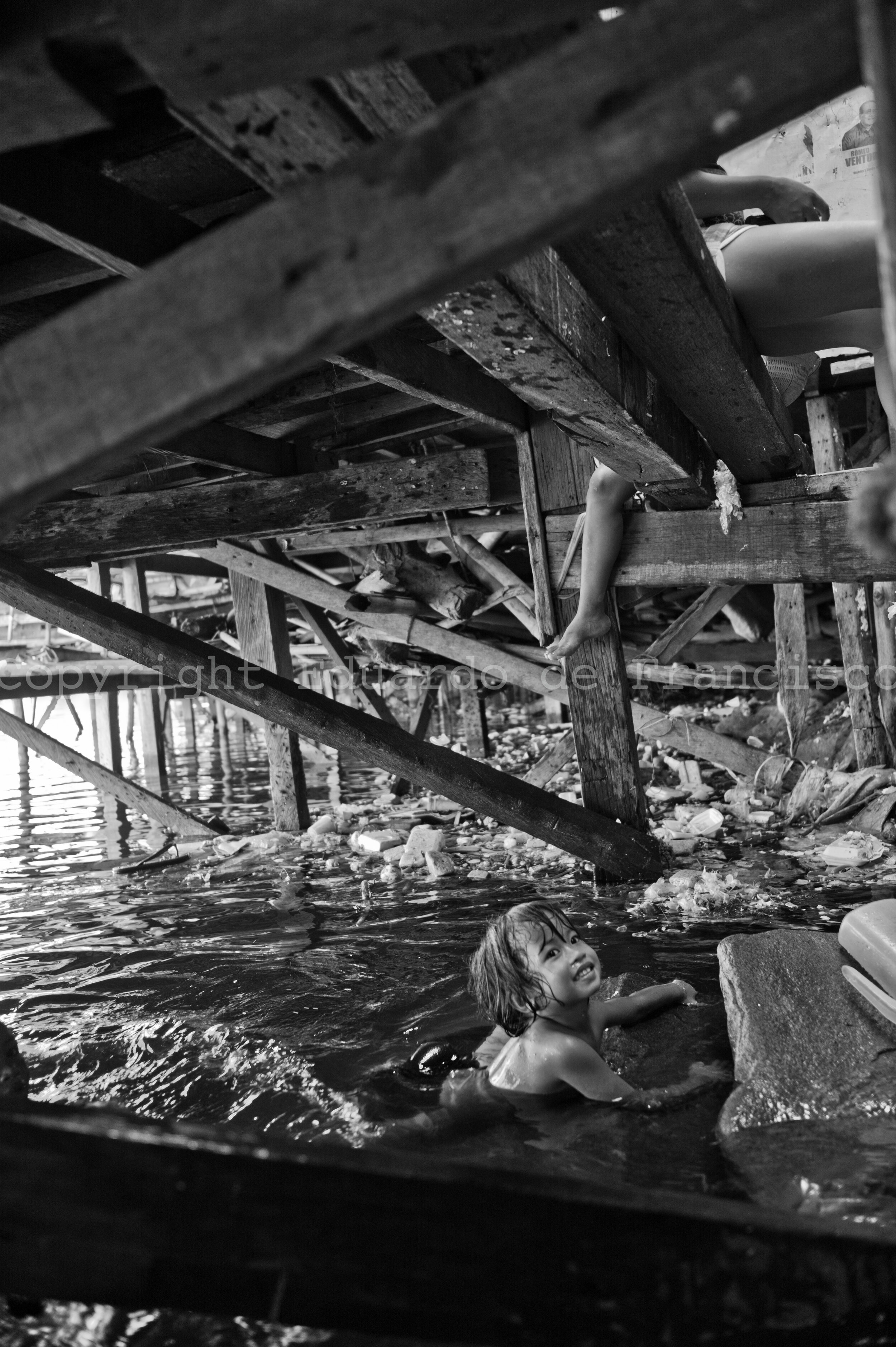
Children looking for empty bottles at the Estero de Vitas
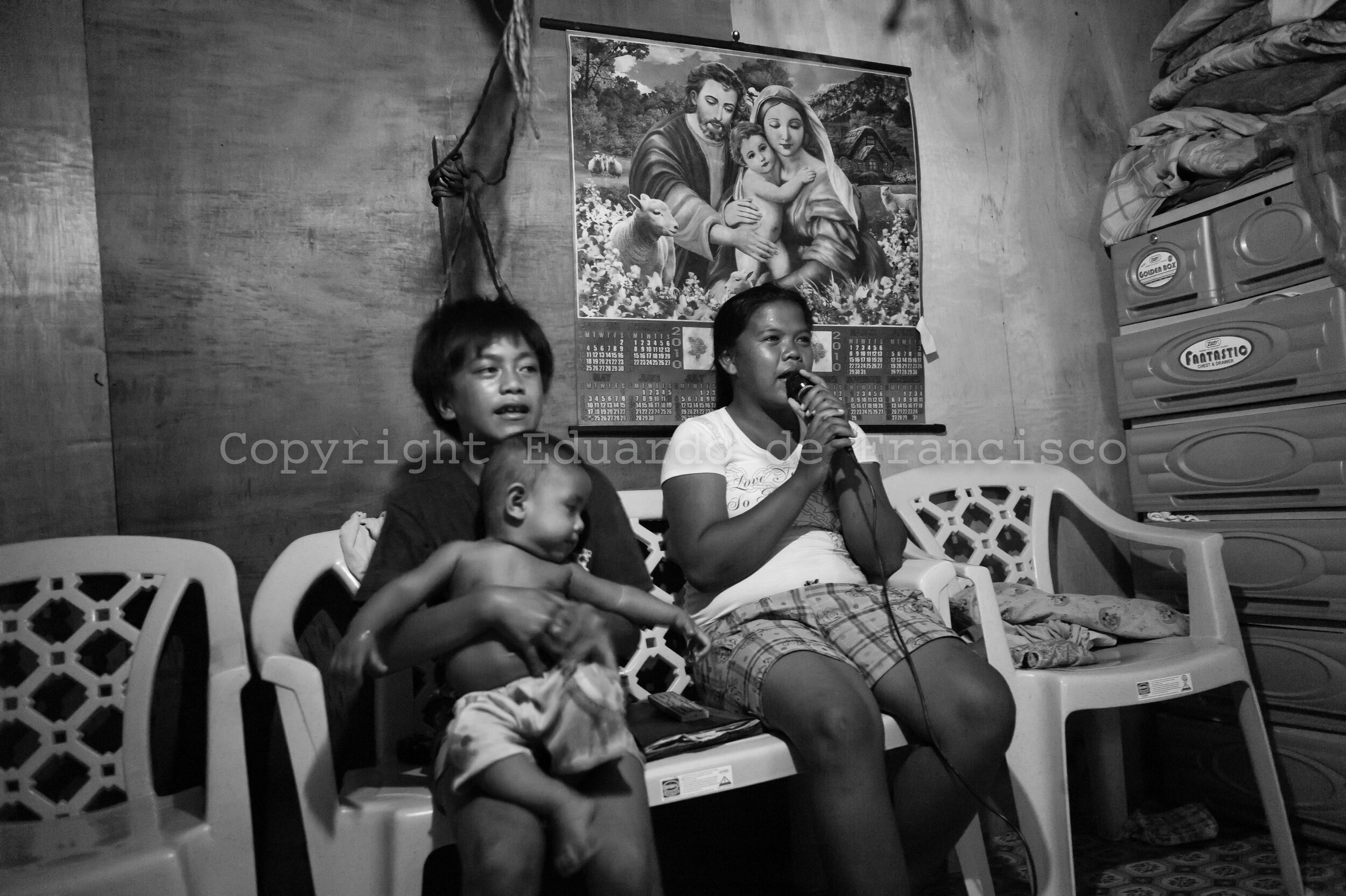
In the housing complex of GK, a family practices another popular evasion practice in Tondo: karaoke.





















